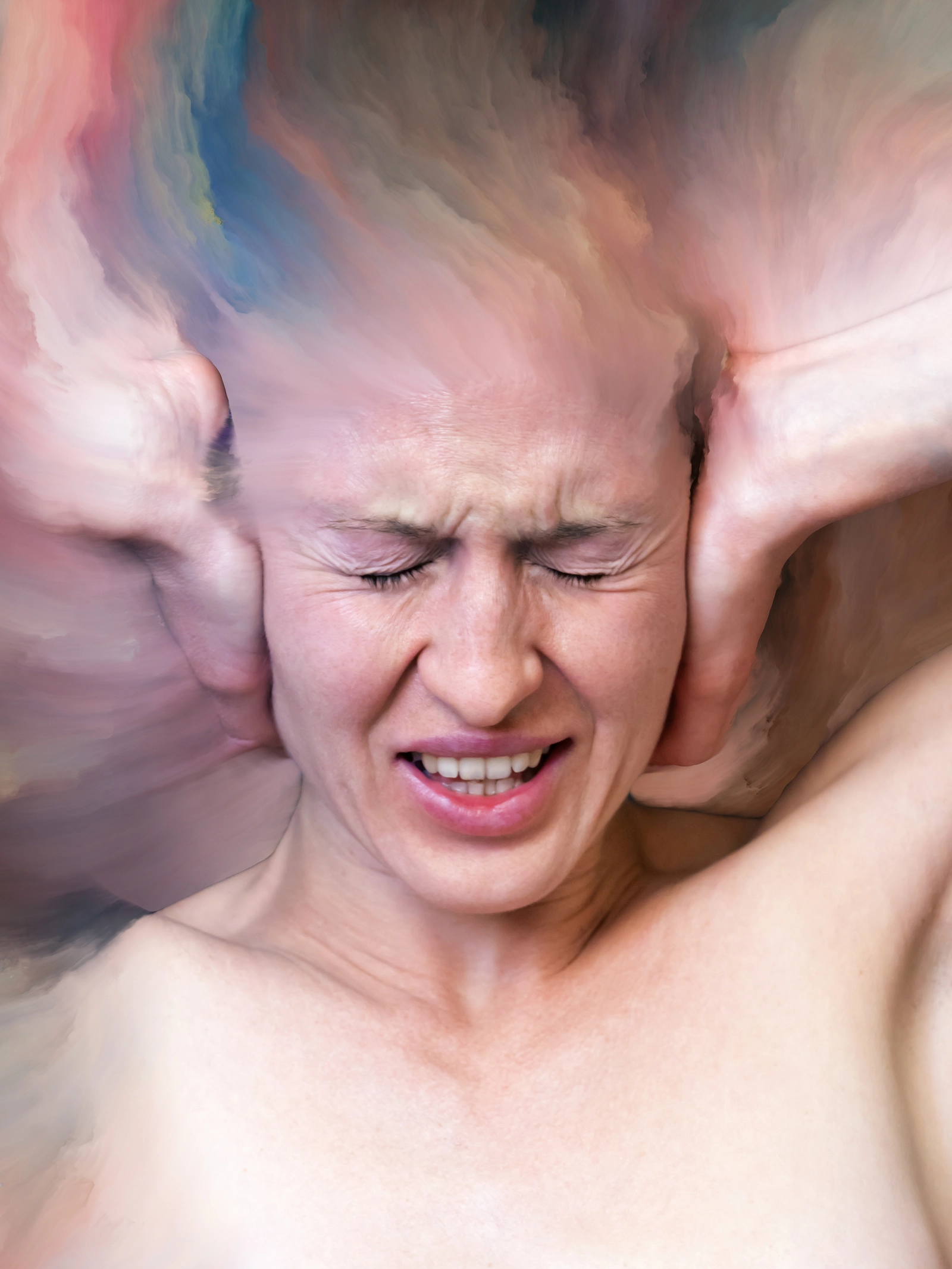Psychosis is a troubling condition that involves a break from reality. It can manifest in different ways, including hallucinations, delusions, and altered sensory perception. How long psychosis lasts and how individuals experience psychosis can vary by many factors, including what induces psychotic episodes.
Learn more about the duration and recovery time for psychosis, types of psychosis, and treatment options.
What Is Psychosis?
Psychosis is a collection of symptoms that affect the mind and involve some loss of contact with reality.[1] Thoughts and perceptions are disruptive during psychotic episodes, causing the person to be unsure of what’s real and what’s not.
The symptoms of psychosis can include:[2]
- Hallucinations: Perceptions of stimuli that aren’t real, such as hearing voices or seeing people or objects that aren’t there.
- Delusions: Unwavering beliefs that don’t match the evidence of reality, such as believing your life is a simulation or that the government is monitoring you.
- Disorganized speech: Illogical or incoherent speech patterns, such as going on tangents and being unable to follow conversation.
- Disorganized behavior: Actions that have no purpose or make no sense.
- Negative symptoms: Decreased functioning, such as no emotional responsiveness, desire, or pleasure.
People with psychosis don’t have the awareness that their thoughts, perceptions, and beliefs are not real. The phenomenon is anosognosia, a lack of insight that can impact recovery.
The presence of psychotic symptoms, such as delusional disorder, schizoaffective disorder, and schizophrenia, defines some kinds of psychotic disorders.[3] Psychosis can present without these mental health conditions, however, and having a psychotic disorder doesn’t necessarily mean that psychotic symptoms will manifest.
Typically, psychosis follows a recurring pattern with frequent psychotic symptoms like delusions or hallucinations that occur intermittently with periods of awareness of what’s real. The intense symptomatic period is the psychotic episode.
How Long Does Psychosis Last?
The duration of psychotic episodes can vary widely. For example, brief psychotic disorder involves psychosis that lasts between one day and one month. Other conditions, such as schizophrenia, can have psychotic episodes that last for six months or longer.
Some psychotic episodes can be triggered by disease, stress, or drug use. In these cases, the length of psychosis may depend on what caused it:[4]
- Affective psychosis: Psychotic symptoms can be part of a mood disorder, such as bipolar disorder, with delusions and hallucinations that occur during intense manic or depressive phases. The psychosis goes away when the mood stabilizes.
- Substance-induced psychosis: Psychosis may be triggered by substances or prescription medications, including corticosteroids or amphetamines. Psychosis often goes away after the person stops using the substance, but it can trigger a chronic condition like schizophrenia.
- Disease-induced psychosis: Some forms of psychosis can arise from non-psychiatric conditions like dengue fever. Treatment of the disease may relieve psychosis. However, some conditions can have persistent psychosis unless the person is treated with antipsychotic medications.
- Postpartum psychosis: Psychotic episodes can occur with the stress and hormonal changes that come with childbirth – postpartum psychosis. This condition can be relieved without intervention as the body’s hormones readjust, but treatment may be necessary.
Stages of Psychosis

There are three stages of psychosis:[5]
- Prodrome: The prodromal stage of psychosis can cause changes in behavior or perception that indicate psychosis may occur. This can be struggling to focus, feeling overwhelmed easily, or wanting to be alone more than usual.
- Acute: The acute stage of psychosis is when the symptoms appear, including hallucinations, delusions, or other odd behaviors. These symptoms can be severe enough to disrupt daily life and last for variable periods.
- Recovery: The last stage of psychosis is the recovery stage. During this stage, the symptoms worsen, and the person can return to normal routine. This often occurs after treatment for the underlying cause.
How Long Does Drug-Induced Psychosis Last?
Drug-induced psychosis happens from chronic use of a substance that affects the brain. The psychotic symptoms are associated with drug use, either during or in the withdrawal period. Though rare, psychosis can occur after the drug has left the system.
Different drugs can have different psychosis duration:
- Methamphetamine and amphetamine: Meth- and amphetamine-induced psychosis can vary in its duration. In a study of meth-induced psychosis, 60% of participants had symptoms resolved in less than a month, 30% had symptoms for 1-6 months, and 10% experienced symptoms for more than 6 months.[6] If brain damage has occurred from prolonged meth use, psychosis can last beyond when the drug has fully left your system, even as long as six months later.
- Marijuana: The duration of symptoms depends on the dose and the individual’s tolerance. Marijuana-induced psychosis typically lasts for 3-4 hours, but it can persist for up to 24 hours.[7]
- Alcohol: Alcohol-induced psychosis is associated with chronic alcohol use. It typically lasts as long as alcohol is present in the system or during the withdrawal process. Psychosis can occur for a month or longer after alcohol use has stopped.[8]
Can Treatment Relieve Psychosis Faster?
The length of untreated psychosis can vary, but treatment can shorten the symptoms. Antipsychotic medications can provide relief from symptoms in as little as one week, though it may take a full month to see complete relief.
With treatment-resistant psychosis, the psychosis isn’t relieved from first-line medications and may need additional treatment. The timeline for psychosis can vary significantly in these cases.
Psychotic disorders can cause longer psychosis and ongoing mental health struggles. For example, schizophrenia can cause hallucinations and delusions that go away with antipsychotic medications. However, negative symptoms can continue despite treatments, like low motivation, lack of enjoyment, blunted emotional responses, slow mental processing, decreased attention span, and limited speech.
Some types of psychotic conditions can be mostly asymptomatic during remission, though it’s important to get treatment to avoid psychotic episodes.
Some types of psychosis may have a short duration, such as schizophreniform disorder. This condition has psychosis that lasts between one and six months. Others, like delusional disorders and schizophrenia, are generally chronic and require lifelong treatment and management.
How Does the Duration of Psychosis Affect Treatment Outcomes?
Research suggests that the length of time a person stays in a psychotic state without treatment may affect the long-term outcome. With a longer duration of untreated psychosis, remission was less likely, and the symptoms were more severe.[9]
Psychosocial factors, such as isolation, fear, and homelessness, can contribute to the onset, severity, and duration of psychotic episodes.
The best prognosis for psychosis and psychotic disorders comes from identifying and treating the condition. Early intervention that occurs when symptoms are recognized can significantly improve treatment response and long-term outcomes.[10]
Can Psychosis Go Away on Its Own?
Psychosis that occurs as a one-time event, such as a brief psychotic disorder or a substance-induced psychotic break, can go away without intervention. However, psychosis that occurs from a mental health disorder is unlikely to go away naturally.
Psychosis with Substance Use Disorder
When psychosis occurs with substance use, it can be a sign of substance abuse or a substance use disorder. Drug-induced psychosis is often associated with chronic substance use. In this case, getting treatment for a substance use disorder and quitting the substance will improve the symptoms of psychosis.
Keep in mind that some drugs that are associated with psychosis are difficult to quit on your own, if not dangerous. For example, methamphetamine can have extremely uncomfortable withdrawal symptoms, while alcohol withdrawal can cause potentially life-threatening complications. It’s best to consider a full addiction treatment program to safely detox from the substance and address the underlying causes of addiction, not just to treat the psychosis but to live a healthier life.
Seeking Help for Psychosis
When psychosis occurs for the first time, it can be tempting to allow it to go away on its own. However, psychosis treatment greatly improves the earlier someone seeks help. Effective treatment is the best way to shorten the duration of psychosis and decrease the chances of relapse.

